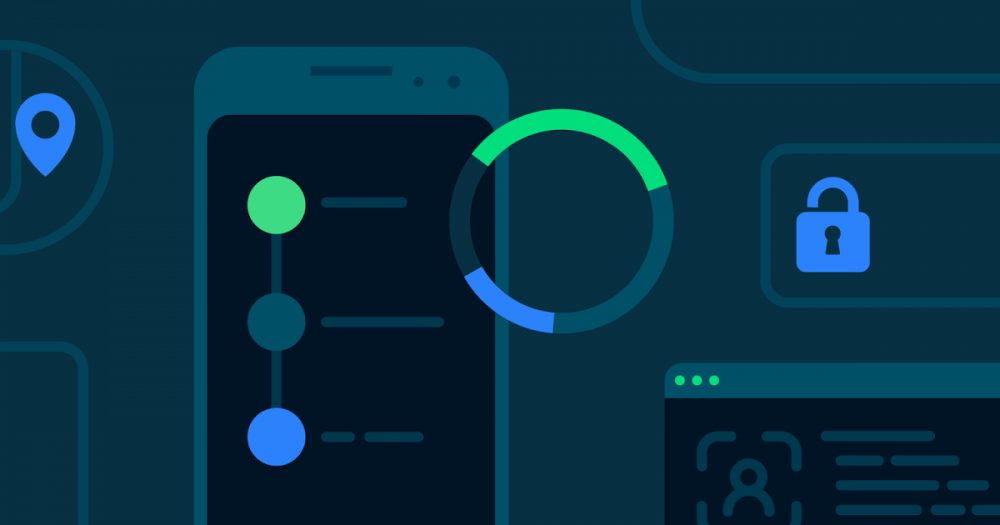
Android 12 Quietly Important Privacy Progress
Android 12's quietly important privacy progress
For the first time in a long time, it's easy to take a cursory look at Google's latest Android effort this year and focus exclusively on the surface.
Android 12's most striking feature is without a doubt the operating system's overhauled look and feel (even if, realistically, Pixel owners will reap the full benefits of that change). We haven't seen such a dramatic reimagining of the Android interface in a long time — since 2014's Android 5.0 (a.k.a. Lollipop) release — and this evolution extends beyond the core software itself, with effects set to extend to the experience of using Android apps and, eventually, Google apps on the web. Within a short period of time, the same principles will apply to Chromebooks, Smart Displays, and Wear-based wearables, resulting in a true Google ecosystem evolution.
And yet, as is customary with major Android updates, there is more to this latest version of the software than meets the eye. Several of Android 12's most significant advancements occur beneath the hood and in the all-too-easy-to-overlooked realms of performance, security, and, particularly, privacy.
Of course, privacy is a hot topic these days — with much of the attention focused on Google in that area veering more toward sensationalism than toward practical, real-world concerns. However, there is no denying that privacy is critical in the appropriate context. Having visibility and control over how your data is used is becoming a more integral part of the modern mobile-tech experience.
At the moment, the majority of the privacy coverage surrounding Android 12 is focused on the software's prominent Privacy Dashboard and how it compares to Apple's recent privacy-focused changes. That's fine and dandy, but focusing exclusively on one marketing-friendly feature risks missing the bigger picture and glossing over some of Android 12's more significant, if less easily promoted, privacy enhancements.
And the software includes a number of them, including more nuanced and focused systems for providing location access to apps, as well as an automated hibernation system that completely disables apps and prevents them from launching background processes after a few months of inactivity.
Perhaps most notable is the addition of a new element called Private Compute Core that is unique to Android-12. It's one of those things that, understandably, gets lost in the shuffle of Android 12's more tangible features, but it's well worth the space in your head to contemplate. In a nutshell, Private Compute Core is a new system-level partition built into Android that enables certain types of computing to take place completely isolated from the rest of the world — without ever leaving your device or risking exposure to the creepy, crawly internet.
It's similar to a sandbox, a term familiar to those familiar with Google's other major platform, Chrome OS (and also to any toddlers who happen to be reading this whilst leaping merrily around a playground). Just as Chrome OS keeps app-specific data separate from the main operating system area of a Chromebook (and just as the playground's literal sandbox keeps, y'know, sand from spilling out onto the rest of the environment), Android will now isolate tasks like artificial intelligence processing and provide an additional layer of assurance that said processing is occurring exclusively on your own smartphone — in a way that coexists with Chrome OS.
To begin, Google is using that system to process data for Android's surprisingly versatile Live Caption system, its Smart Reply feature (which analyzes the context of your text messages or emails and suggests one-tap responses), and its Now Playing feature (the Pixel-specific option that listens for songs playing around you and identifies them, now with the added knowledge that no one else could ever discover that you listen to Chumbawamba on an infinite loop while driving). Google says that additional types of processing will be added later this year.
For Google, the concept of privacy has always necessitated an amusing balancing act. Much of what Google wishes to accomplish with technology requires some level of access to information, whether we're talking about genuinely helpful bits of artificial intelligence like those found in the trio of aforementioned features — all of which require some level of monitoring of activity on your device to function — or even broad bits of profile-styling data. All of this involves some sort of trade-off between information and function, and including this additional level of technical assurance that the associated data will not and cannot be misused appears to be a prudent way to keep those two competing forces aligned.
In Summary
Above all, the presence of Private Compute Core alongside all the other privacy, security, and performance enhancements in Android 12 reaffirms an oft-ignored reality in these Google-scented virtual quarters: that Android upgrades absolutely, positively matter, even if you're using a device that doesn't always support the surface-level improvements.
These changes are likely to get lost in the more colorful discussion of Android 12's new interface and all its bells and whistles, but you can bet they're significant — not just for business users and those dealing with sensitive data, but also for anyone who cares about having the most optimal, up-to-date setup for interacting with apps and ensuring whatever you're doing is secure.
Courses and Certification
Google Drive Course and Certificate
Google Docs Course and Certificate
Google Slides Course and Certificate

